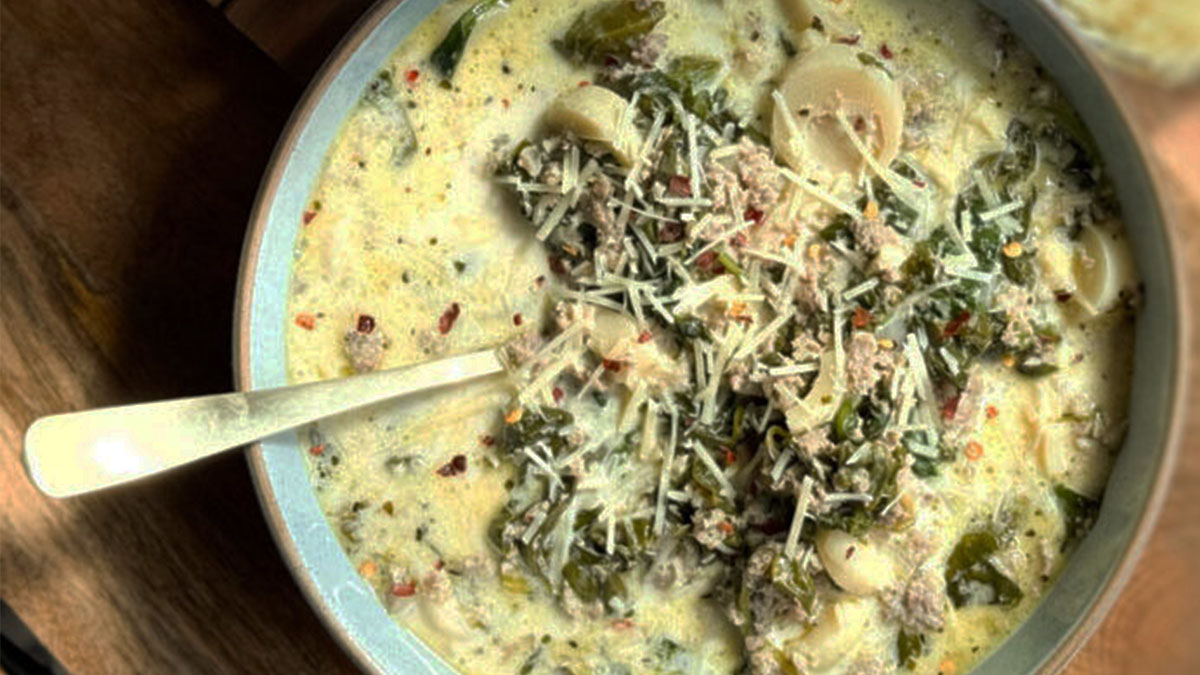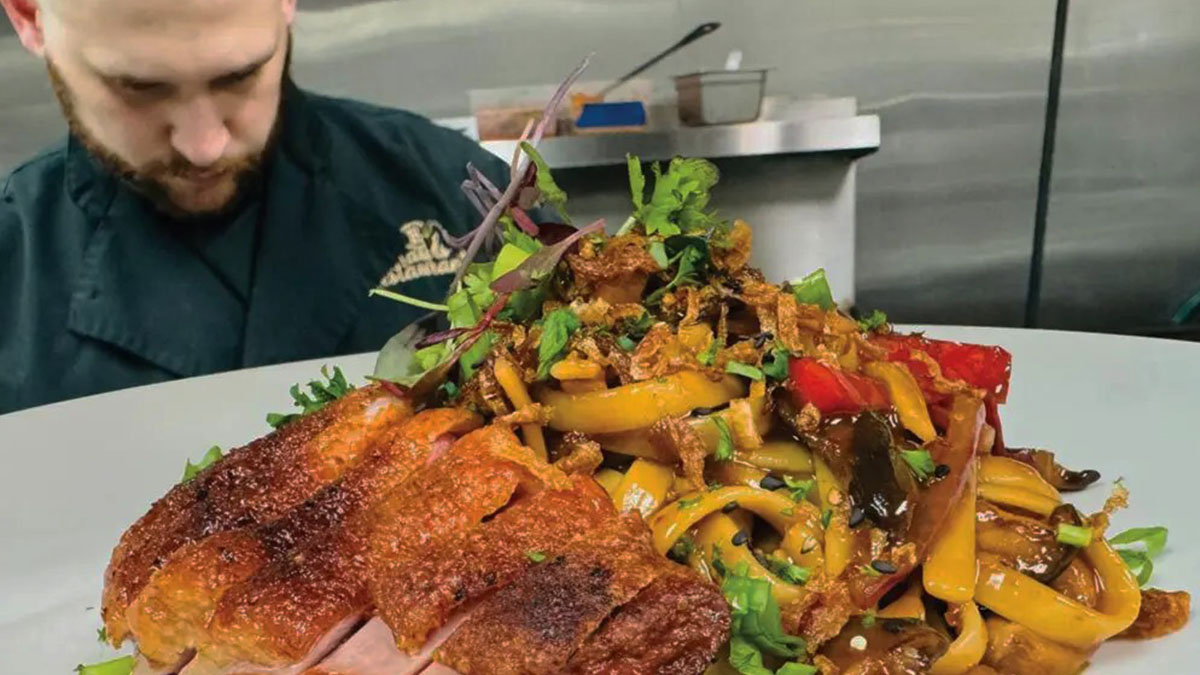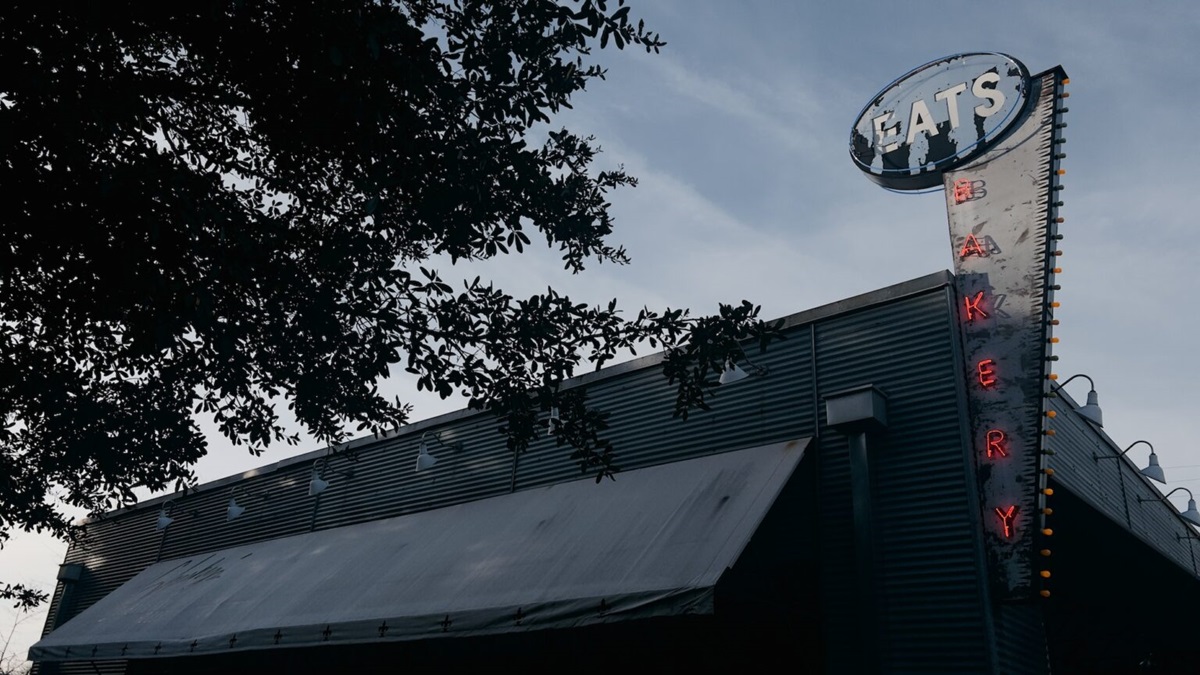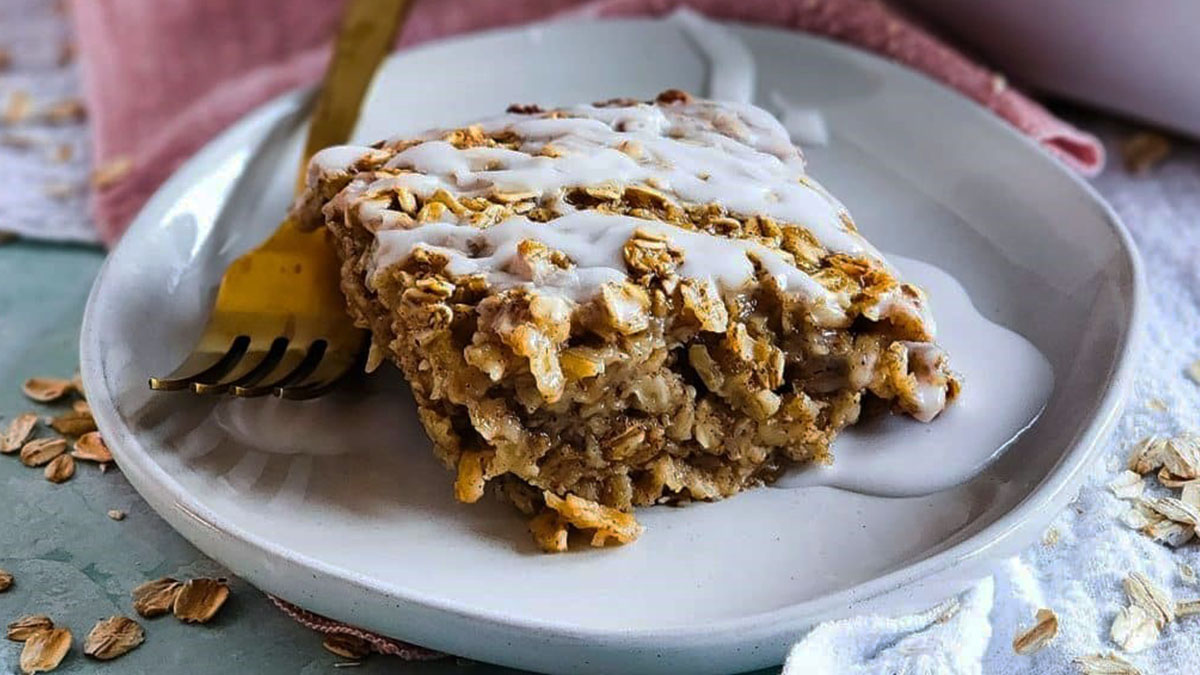Historic downtown Selma has a fresh, new eatery
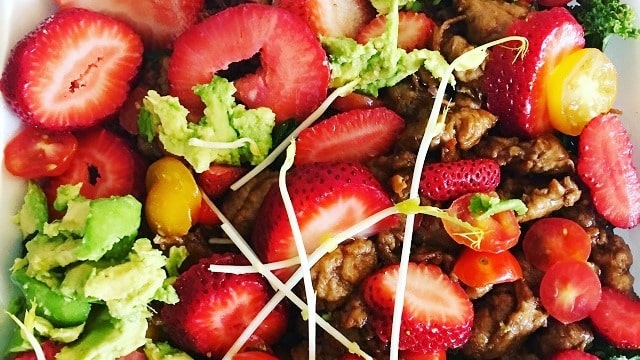
The food at Organpi Farms Farmhouse in Selma is made fresh daily from ingredients supplied by several organic farms. (Brittany Faush/Alabama NewsCenter)
There’s a view of the Edmund Pettus Bridge from the back deck of Dr. Portia Fulford’s restaurant, Organpi Farms Farmhouse on Selma’s Water Avenue. There’s a vision in Fulford’s mind — and in her heart — of what’s possible for her historic city. She’s doing her part to make that dream a reality — one freshly prepared meal at a time.
But to be clear: Fulford doesn’t consider her restaurant to really be a restaurant. “We are a nonrestaurant eatery,” she says. “It’s a gathering place centered around food.” Eventually, she plans to invite visiting chefs into her woman-owned business to use it as a “center for culinary arts.”
Organpi Farms Farmhouse, which opened in March, certainly doesn’t follow a conventional business model. “Each week I post what the hours will be (on Facebook and Instagram and at the restaurant),” Fulford says. “That’s totally dependent upon what foods are available. We stay open until we sell out, so we maintain no inventory. What we brought in today, we’ll get rid of today and start over tomorrow.”
Some days that means they serve lunch from 11 a.m. to 3 p.m. On one particularly busy Friday, they served food from 11 a.m. to noon. When food is served, there’s a sign out front that reads, “Open for Love.”
Organpi Farms Farmhouse in Selma is always cooking up something special from Alabama NewsCenter on Vimeo.
You’ll find a chalkboard menu on the wall, but it’s mainly a template. These are items that are — or will be — available at some time or another. “We want our customers to get accustomed to change,” Fulford says, adding that it’s a great way to get people to try new things.
Some dishes, though, are standards — the firehouse smoked wing platter with its big helping of meaty, organic wings; the Asian-flavored honey chicken; the bison burger and an organic veggie burger that’s gaining regional acclaim; Gal’s hoppin’ John, which will be the fall stew; and various versions (chicken, bison, tuna, steak or vegan) of the Queen City wrap. This sandwich, with marinated kale, heirloom tomatoes, avocado and a protein of your choice rolled up in a tender flour tortilla, features a sweet, nutty, savory sauce that defies description beyond “truly and absolutely delicious.” There are Grandma Gal’s corncakes — fluffy and lovely — under glass on the counter. This kitchen does amazing things with kale and sells a lot of salad. Fruit and vegetable smoothies are available at the juice and tea bar whenever the doors are open. They serve organic teas from a supplier in Harlem.
Many of the foods are grown in Black Belt soil. Fulford pulls from her own Organpi Farms (soon to be rebranded as Whiskey Gal’s Farm) and also relies on Spencer Farm and Armstrong Farms and local farmers’ markets. “We really respect the integrity of the food. There’s a natural flow and progression. It’s a dialogue (between us and the other farmers); we buy what they have,” she says.
This is a charming place with found objects (a buffalo hide, an antique wedding dress, an ornate mirror, an old saddle) on the walls and farm-fresh flowers on the tables. These tables are large enough to encourage strangers to become acquaintances. Michael Jackson hits play on a boom box, and everyone gets a friendly hello when they walk in. The marble counters and bronze-grilled teller windows of a former bank enclose the small kitchen. There’s a welcoming communal table for eight on the sidewalk out front next to big tubs full of flowers and tomato plants. Out back, maidenhair ferns grow wild between the bricks of the building high above the Alabama River.
Tips are accepted at the Farmhouse, but then they are given away. The most recent recipient was Marta Effinger-Crichlow and her film “Little Sallie Walker,” a documentary about how the joyful rituals of childhood play and games help black women make their way in America. “We wanted to infuse gratitude into what we do,” Fulford says. “It’s about putting something back out into the world.”
Next month, a school in Uganda will benefit from customers’ generosity. After that, it will be another cause or organization or individual.

Fulford is not afraid of making her own rules. “I am a doctor by trade who traded in that life for my tractor and my farm. I just started completely over. I didn’t like the fact that people’s main (health) problems were centered around lifestyle. By the time they get to you, it’s too late.” Good, fresh food, she says, can play a healing role in lives. She wanted to be a part of bringing that kind of healthy lifestyle to her city.
“Selma is home for me, both on my mom’s side and my dad’s side,” she says. “This is a place that I believe is truly in transition. We have one of the most beautiful cities in Alabama. We’re right on the water. We have … the most famous bridge in America. … I gave up the luxuries and the comforts of having what would be considered stable and comfortable to birth something — to be part of the re-birthing of the new Selma.” That means bringing fresh foods and unusual flavors to her city. It means opening her doors so women can gather and network and make their lives better.
Fulford comes from a long line of strong women. “These were pound-cake-making, pistol-toting women that you just didn’t mess with,” she says. Her great-grandmother Gal, in particular, was an inspiration. Fulford is working on a cookbook that features the cast-iron cookware of Gal and other female relatives as well as the recipes they cooked in these pots and pans.
These were women who cooked with love even as they often were missing ingredients, Fulford says. “The fundamental ideology behind the Farmhouse is that we exist to work with what we have. We don’t exist to have everything in abundance and then sell it to you. We exist because we are making do with what we have because what we have and who we are is enough. And because it’s enough, we find gratitude and life and happiness in the simplicity of what we have — not in the overabundance of what we can accumulate.”
Organpi Farms Farmhouse
1010 Water Ave., Selma, Alabama 36701
334-267-4100
Hours: Usually Wednesday through Friday or Saturday, from 11 a.m. to “sold out.”
Look for Organpi Farms Farmhouse on Facebook and Instagram for specific dates and times of operation.












